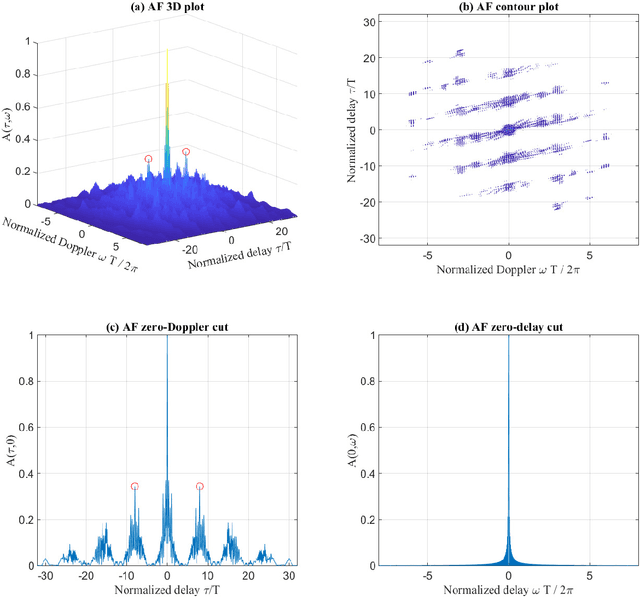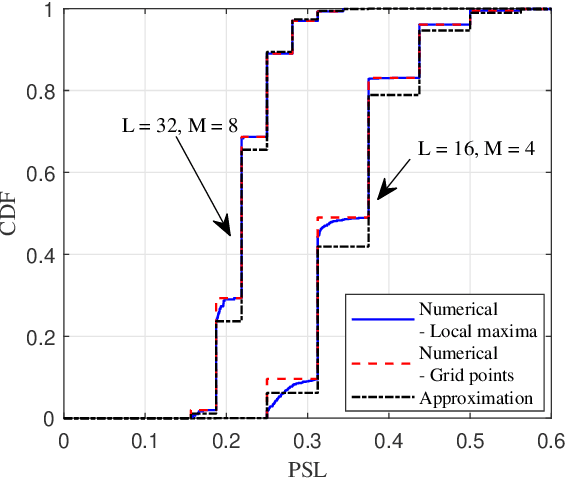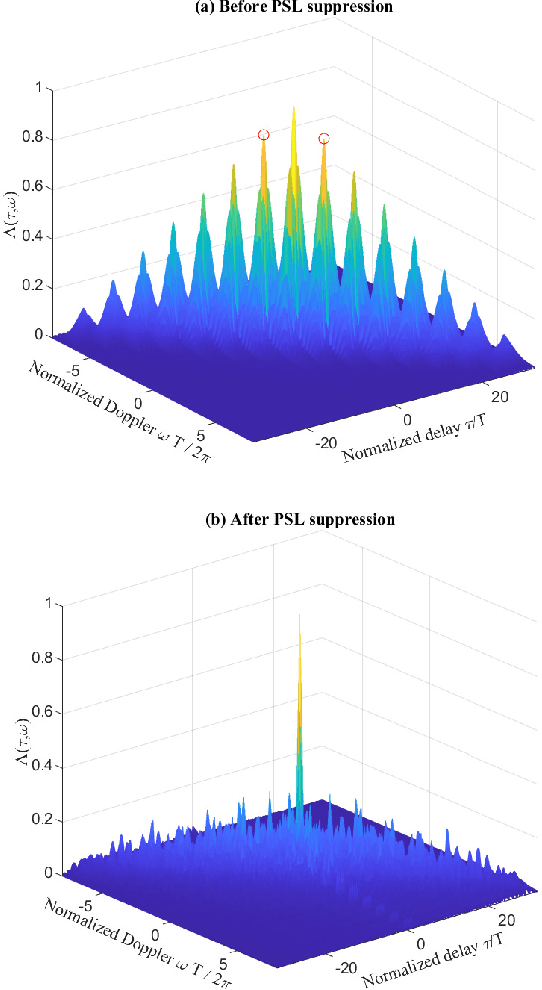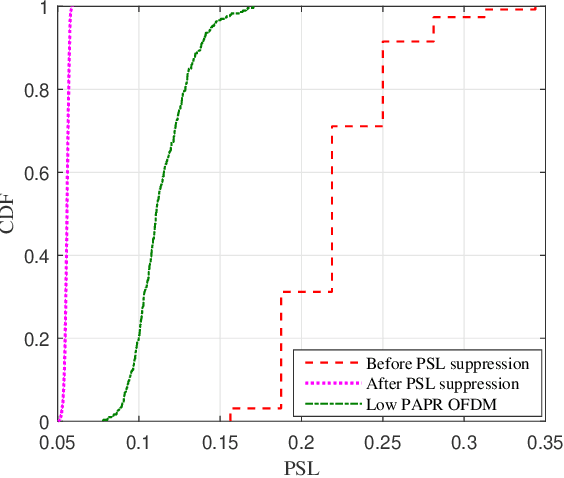Jamie S Evans
Can FSK Be Optimised for Integrated Sensing and Communications?
May 02, 2024



Abstract:Motivated by the ideal peak-to-average-power ratio and radar sensing capability of traditional frequency-coded radar waveforms, this paper considers the frequency shift keying (FSK) based waveform for joint communications and radar (JCR). An analysis of the probability distributions of its ambiguity function (AF) sidelobe levels (SLs) and peak sidelobe level (PSL) is conducted to study the radar sensing capability of random FSK. Numerical results show that the independent frequency modulation introduces uncontrollable AF PSLs. In order to address this problem, the initial phases of waveform sub-pulses are designed by solving a min-max optimisation problem. Numerical results indicate that the optimisation-based phase design can effectively reduce the AF PSL to a level close to well-designed radar waveforms while having no impact on the data rate and the receiver complexity. For large numbers of waveform sub-pulses and modulation orders, the impact on the error probability is also insignificant.
 Add to Chrome
Add to Chrome Add to Firefox
Add to Firefox Add to Edge
Add to Edge